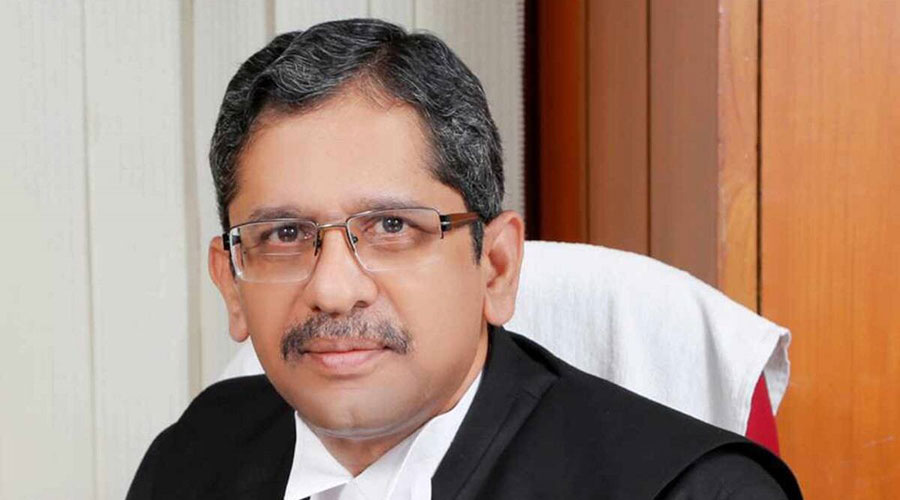Telangana High Court is set to witness a 75 per cent hike in its sanctioned bench strength from 24 to 42, a two-year-old demand coming to fruition after new Chief Justice of India N.V. Ramana had a one-to-one interaction with Prime Minister Narendra Modi.
Justice Ramana has for over a month been vigorously pursuing with Modi also the subject of filling up the 40 per cent vacancies in the country’s high courts, now working with 650 judges against a combined sanctioned strength of 1,080.
The backlog of cases with the country’s 25 high courts runs into millions, with the Modi government frustrating several past Chief Justices of India’s (CJI) efforts to have them filled.
The demand to increase the sanctioned bench strength in Telangana High Court, and not just fill the vacancies there, owes to its disproportionately high backlog of 2.37 lakh cases (2.03 lakh civil and 34,000 criminal cases).
However, the Centre sat on the proposal for the past two years despite requests from then Chief Justice of India S.A. Bobde, the chief justice of Telangana High Court and the chief minister.
After assuming charge as CJI in late April, Justice Ramana took up with Prime Minister Modi and law minister Ravi Shankar Prasad a host of issues concerning the judiciary, including Telangana High Court’s request.
Both Modi and Prasad agreed to get the matters examined promptly. Justice Ramana then took up the subject of Telangana High Court specifically with Prasad in writing on May 27.
He underlined in his letter that the proposal for a hike in the sanctioned bench strength had been hanging fire since February 2019, and stressed that filling the current vacancies would not be enough to clear the case backlog.
Quoting from earlier communications, Justice Ramana affirmed that the necessary infrastructure was in place to accommodate 42 high court judges in Telangana.
The law ministry conveyed to the CJI on June 6 that it had accepted the proposal. Justice Ramana gave his requisite final approval to the proposed hike on June 8, clearing the decks for the law ministry to issue the necessary notification.
Sources said the proposal had been sent to Prasad as far back as February 13, 2019, by the then chief justice of Telangana High Court. The chief minister and the then Telangana governor had endorsed the suggestion.
But the Union law ministry, after examining the matter in detail, kept the proposal in abeyance. It revisited the matter on a reference from the Prime Minister’s Office after the chief minister wrote to the Prime Minister.
After the re-examination, the ministry wrote to the then Telangana High Court chief justice on November 15, 2019, that preference would be given to filling up the vacancies first. Thereafter the matter remained dormant till Justice Ramana’s intervention.
Thirty-two of the 42 judges in Telangana High Court will be permanent judges and 10 will be additional judges, with 28 judges elevated from the Bar and 14 from the judicial services.











